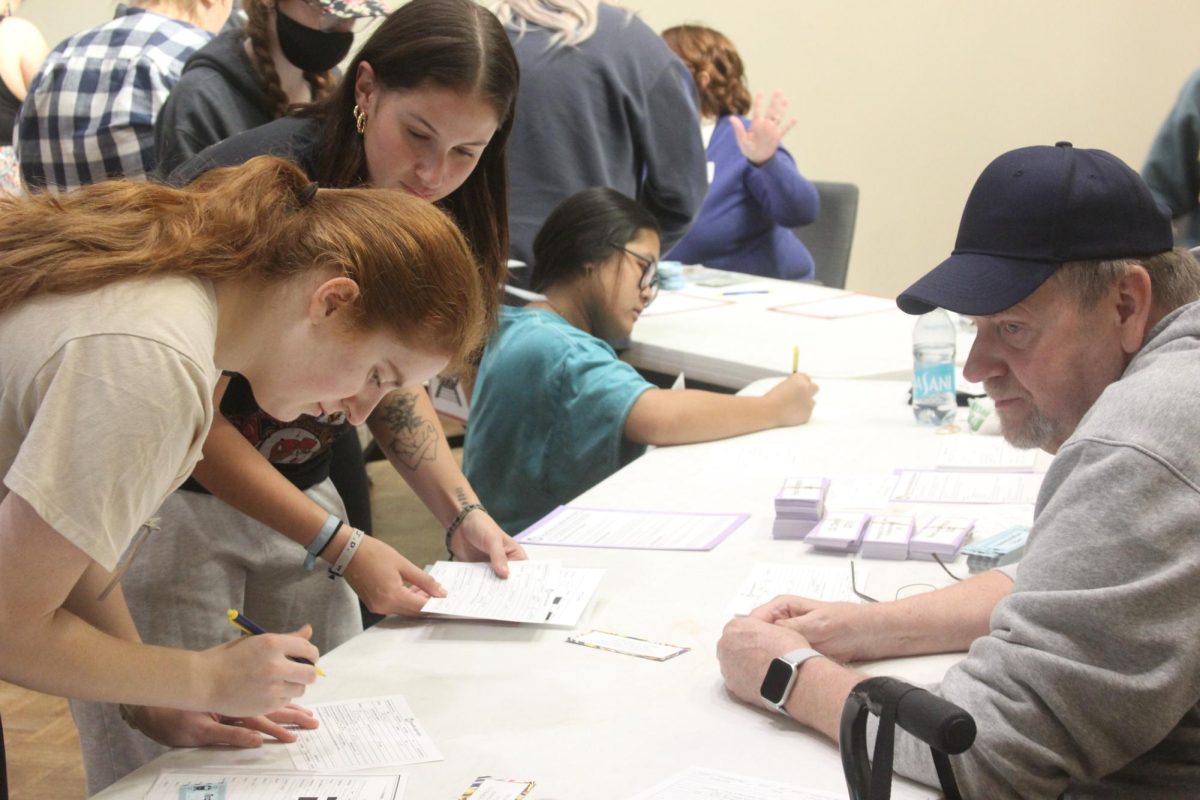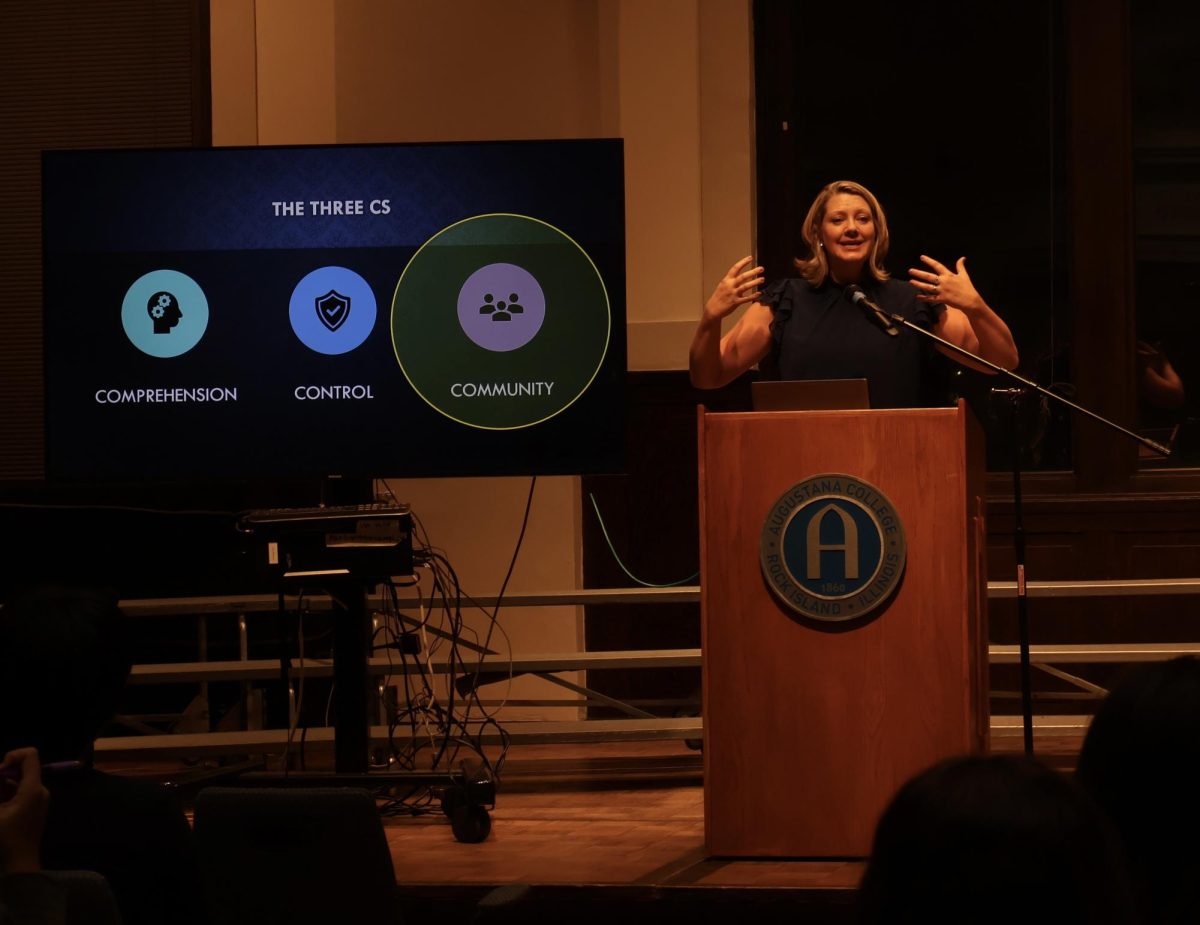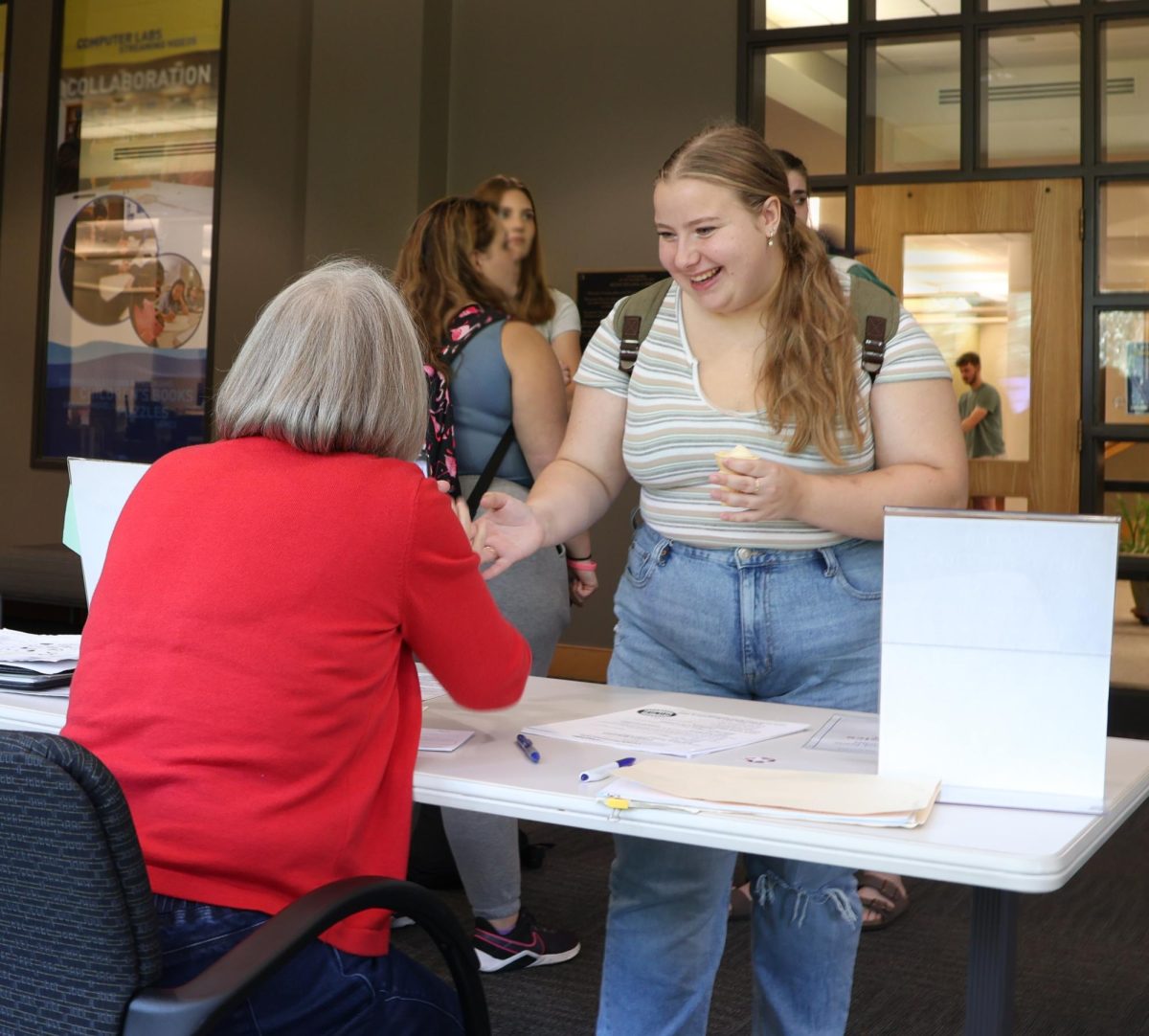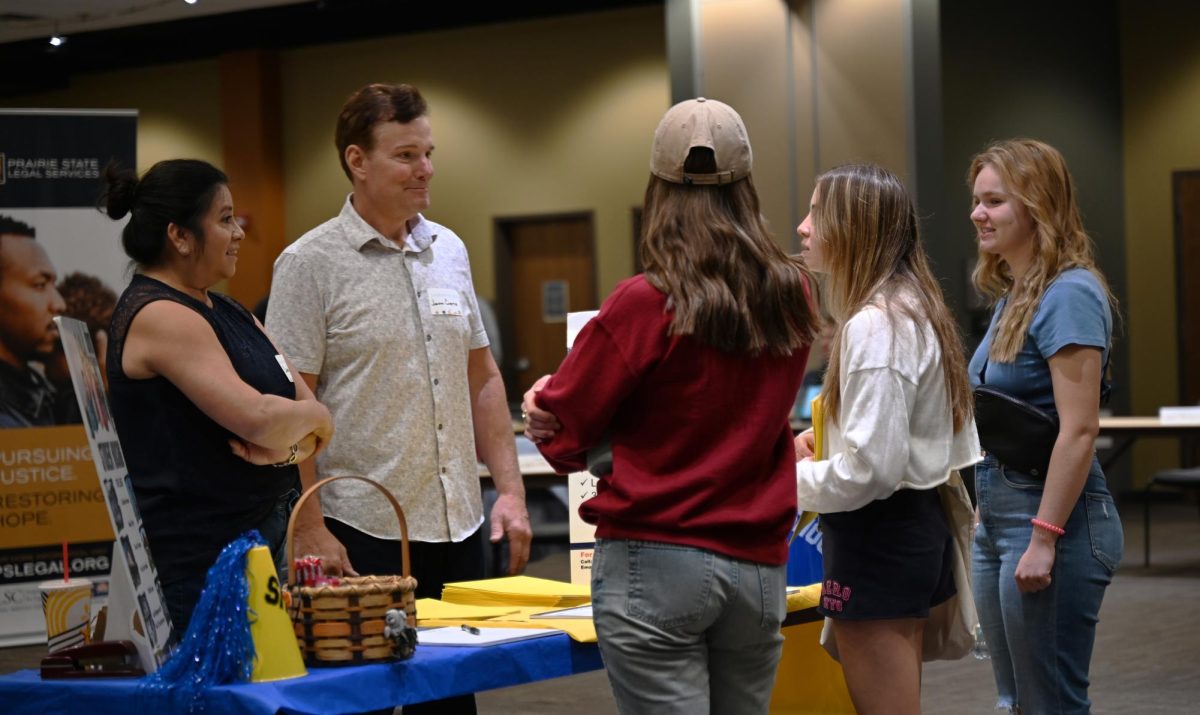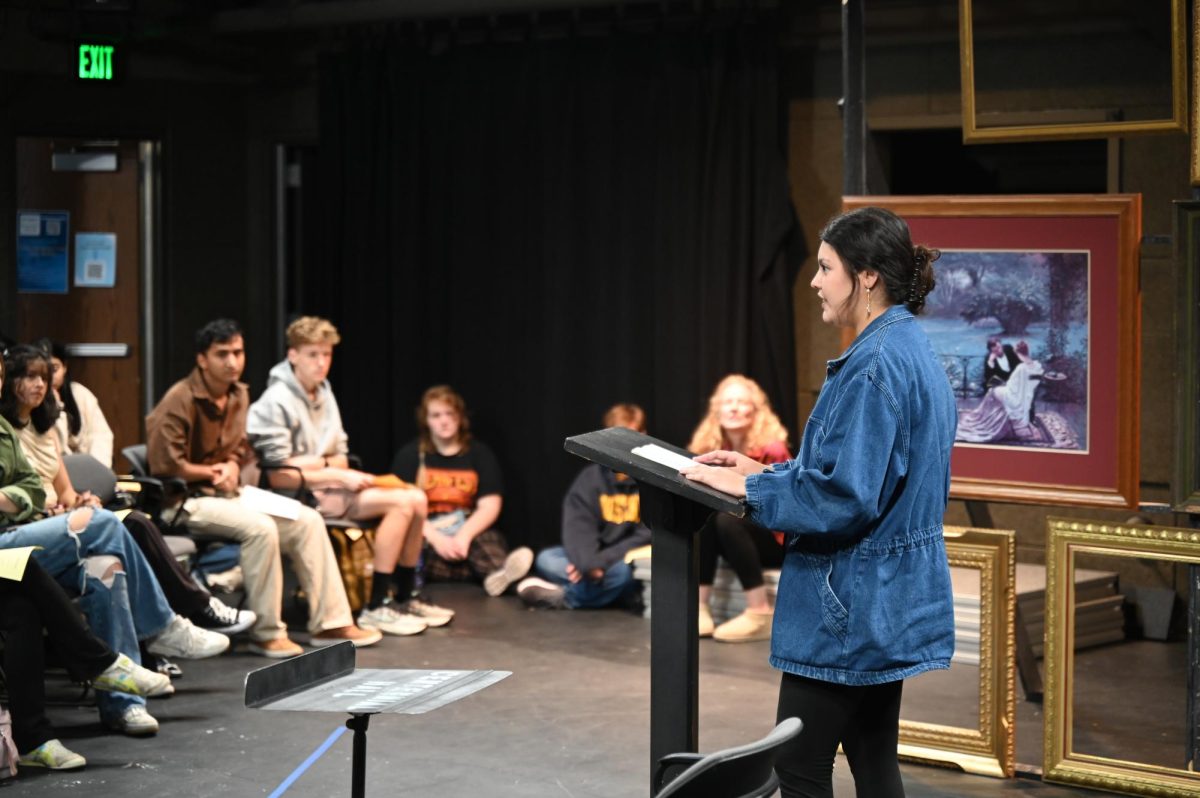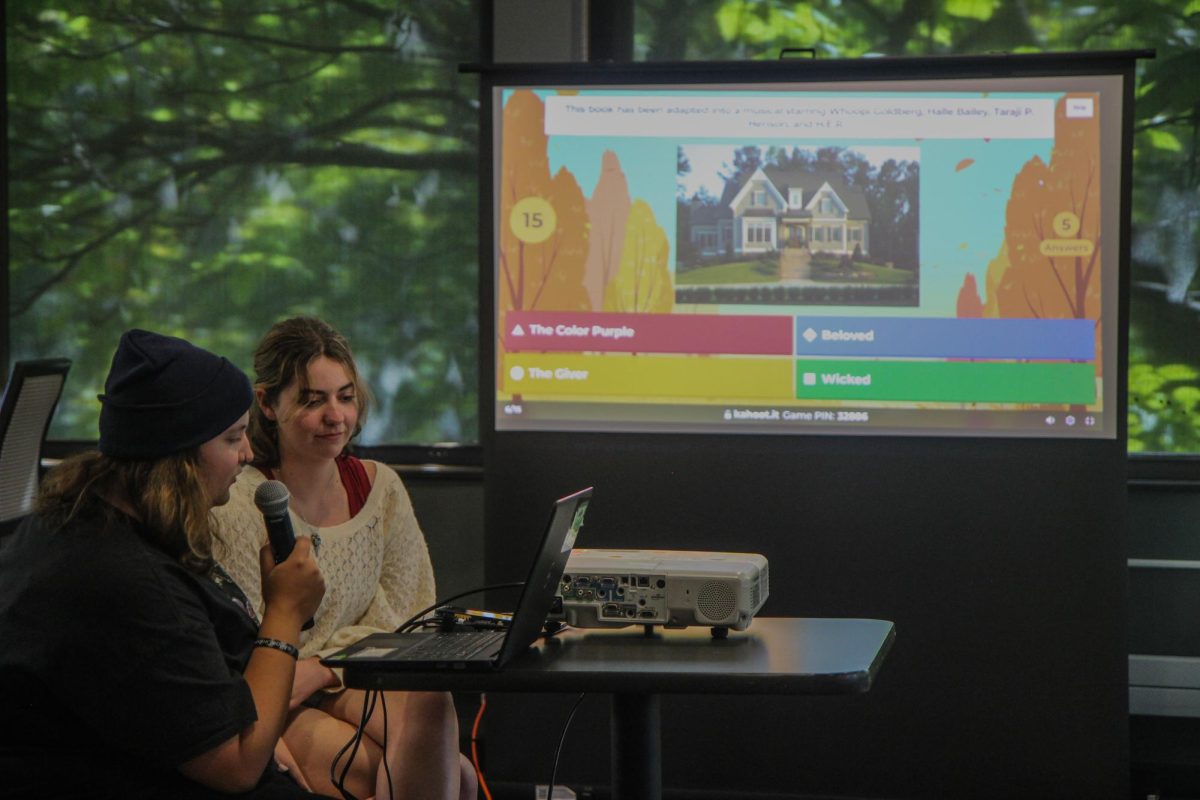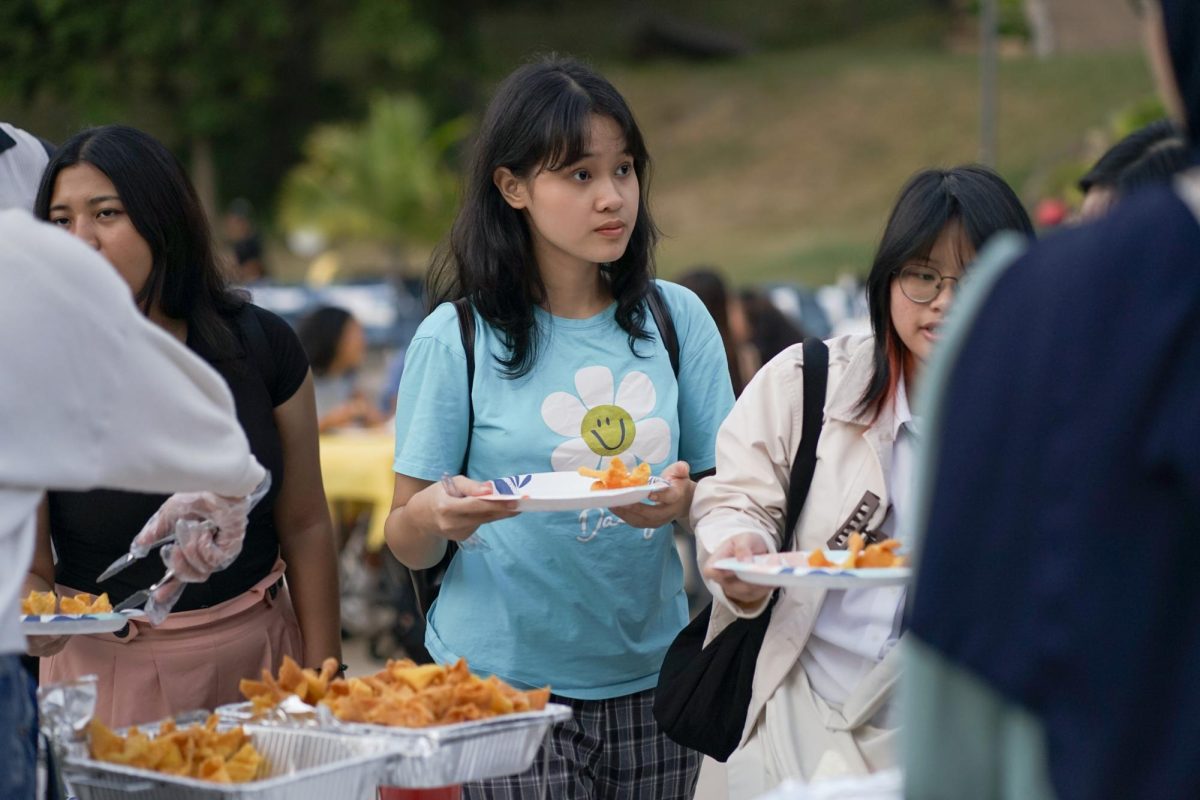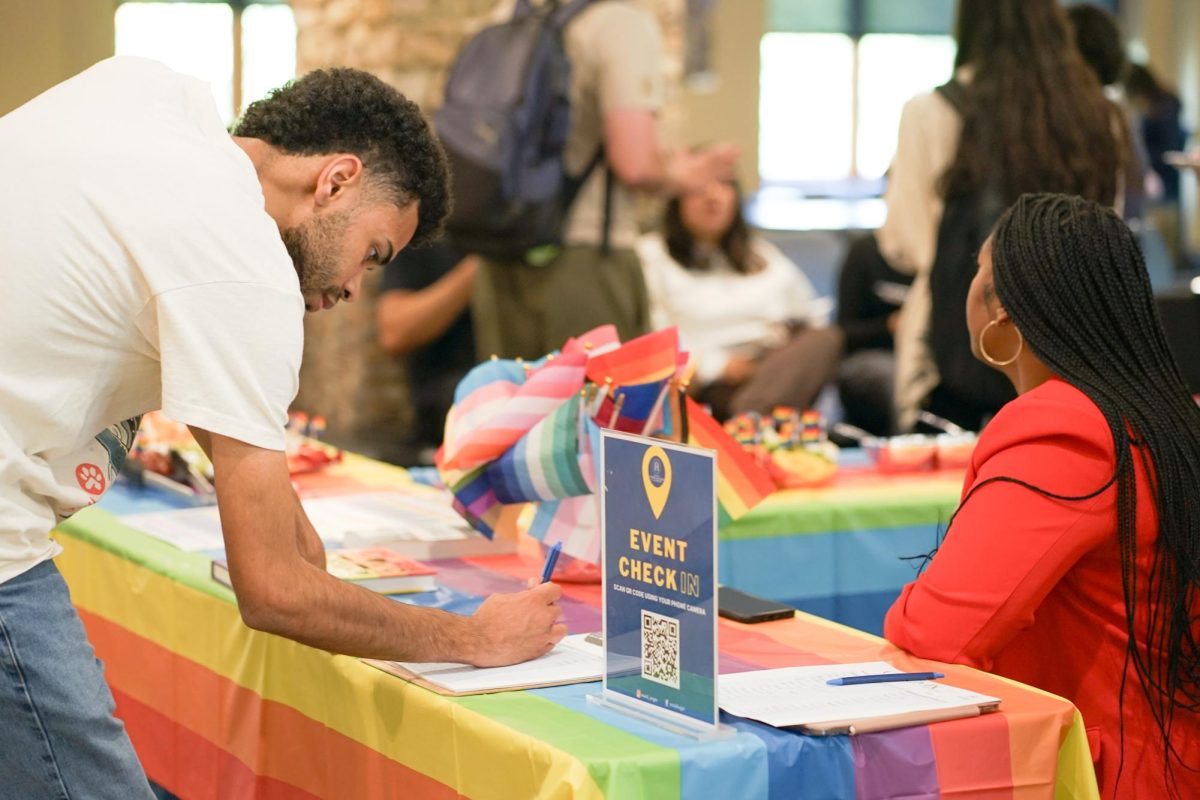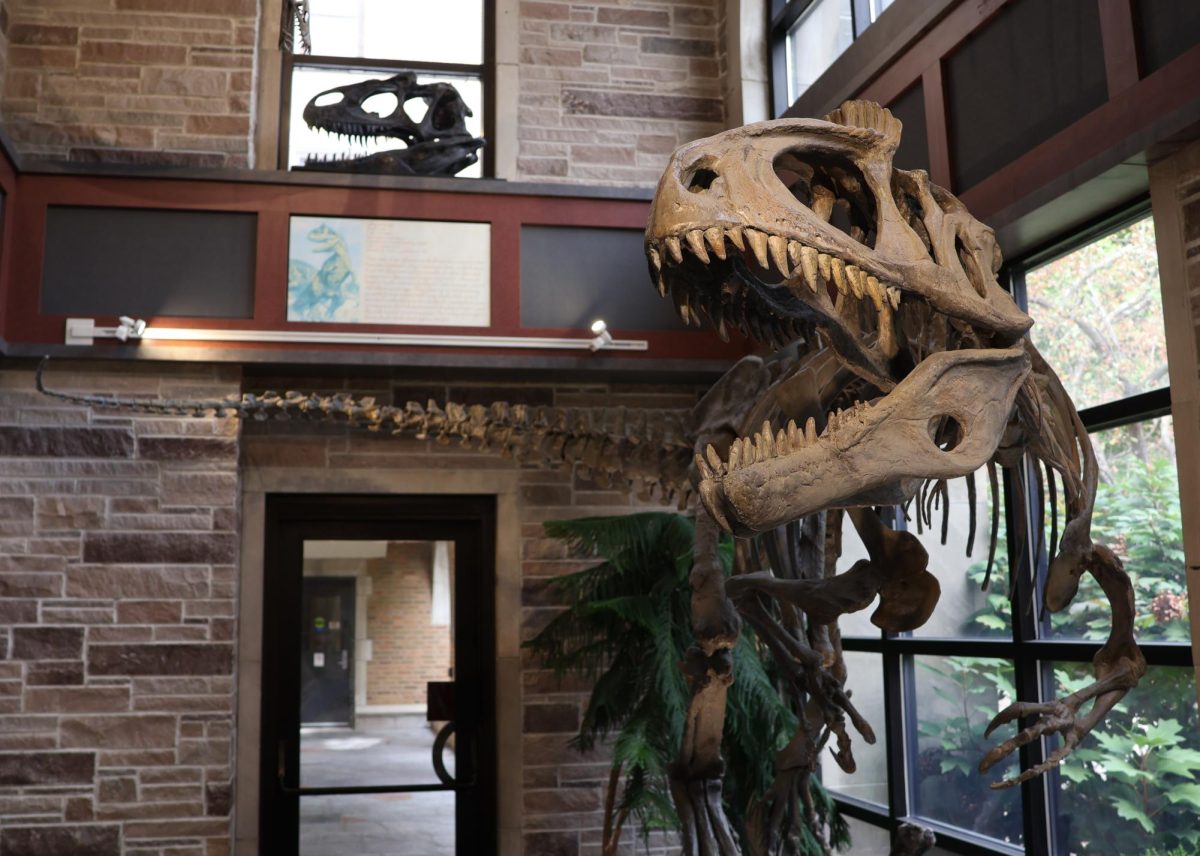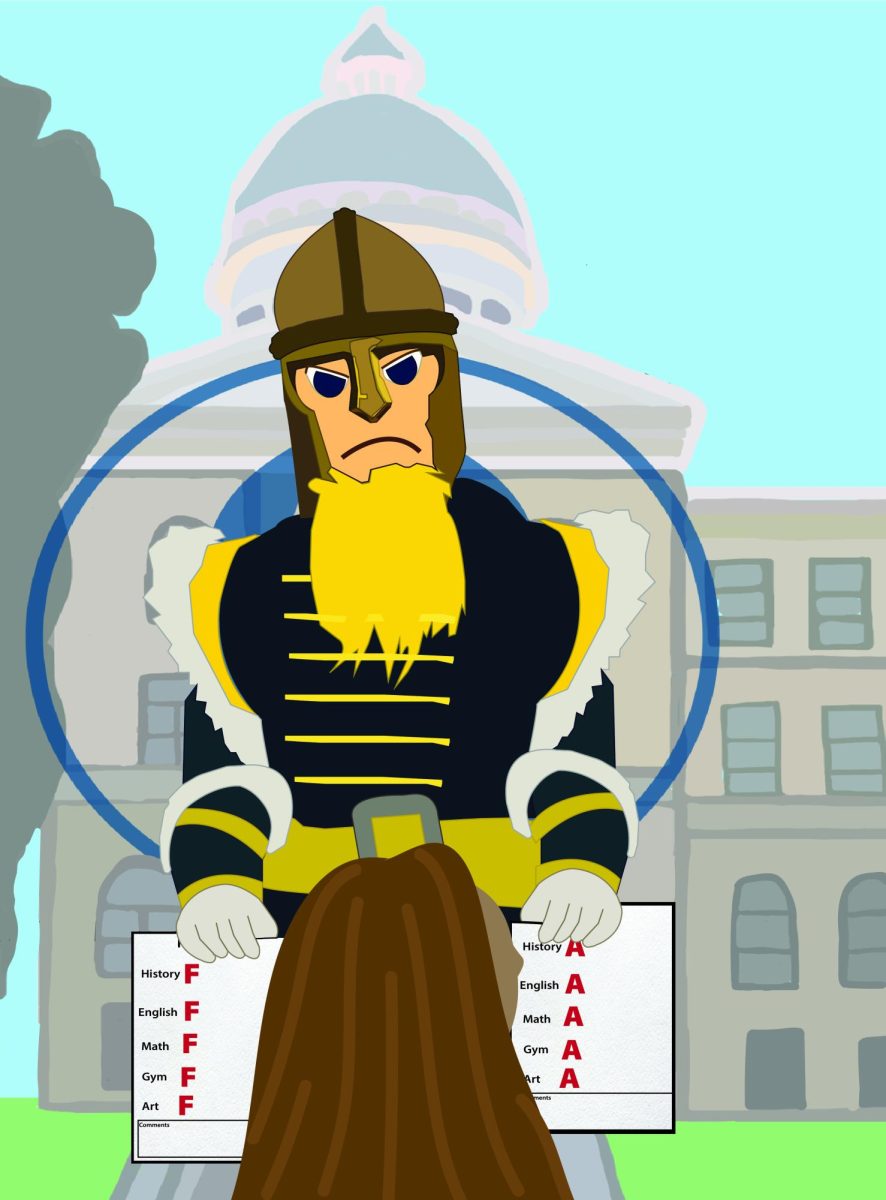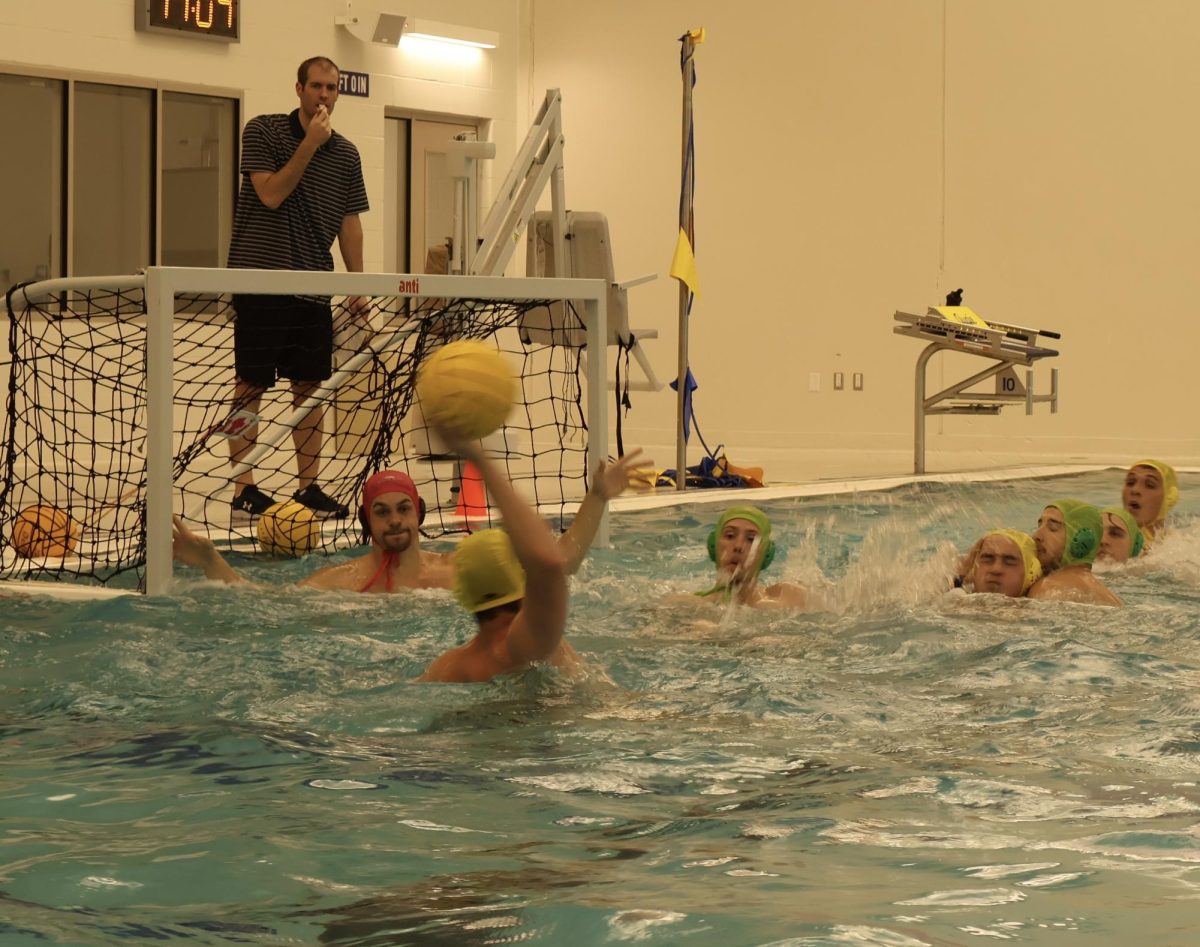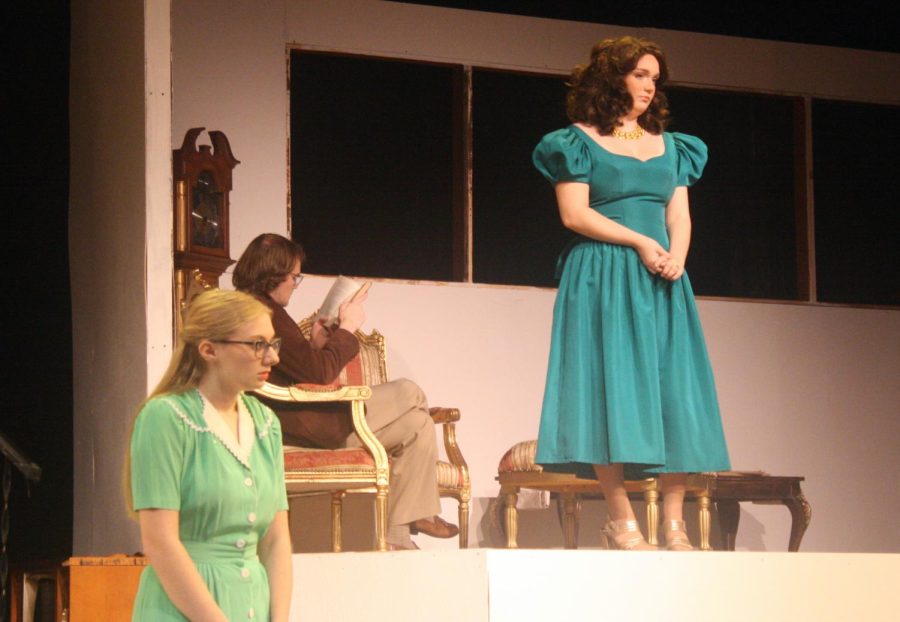“Tartuffe” plans to steal the stage
Sophomore Emma Watts, First-Year Soryn Richter and Sophomore Allison McPeak rehearse for “Tartuffe.”
October 14, 2022
A comedic tale of a swindling squatter comes to the mainstage on Oct. 13-16. “Tartuffe” is a theatrical comedy written by the French playwright Molière. Directed by Professor Jeff Coussens, Augustana’s special adaptation is set in 1980s Louisiana instead of 17th century France.
“Tartuffe” tells the story of a con-man who falls under the care of a wealthy and religious man Orgon and his family. Tartuffe pretends to be a pious man to win over Orgon and his mother, Madame Pernelle. However, the rest of the family can see who Tartuffe really is. With their father, Orgon, blind to the truth, the family begins plotting for a way to expose Tartuffe as the crook he is.
In this adaptation of “Tartuffe,” Coussens decided to make a few key changes to the production, including an entirely new era and setting.
“I saw parallels between the 1980s and the neoclassical era in which Molière was writing,” Coussens said. “Not just parallels in terms of the relevance of the story to modern times, but I also saw parallels in terms of the ostentatious kind of fashion of both eras.”
The 1980s contained many movements which Coussens felt perfectly set the stage for “Tartuffe,” such as televangelism, Moral Majority and Reagan’s administration. Set in Louisiana, which has French heritage, Coussens stays true to the play’s French roots, even with his changes.
“The 1980s become a bridge between Molière’s original production and where we are today,” Coussens said.
However, this is not the only adaptation he made. As far as style goes, Coussens gave certain characters a makeover. Orgon’s son Damis, played by first-year Noah Johnson, becomes a traditional goth in this rendition of “Tartuffe.”
Sophomore Bailey Hacker, hair and makeup designer, said they especially enjoyed the changes to Damis’ character. Working closely with Damis, Hacker has been able to think outside the box within his character, tuning heavily into their love of alternative fashion.
“He’s kind of my little passion project,” Hacker said.
Alum Megan Hoppe, costume designer, has redesigned costumes to specifically fit this new era and location. After reading through the script, she worked closely with Coussens to bring his stylistic choices for characters to life.
“The best thing as a costume designer is to get an actor into their costume, and then be like, ‘yeah, this feels right’,” Hoppe said.
First-year Megan Yarusso, who plays Marianne, the daughter of Orgon, is engaged to Valere in the original play. But in this rendition, she is pursuing Valerie, a female version of Valere.
“She really wants to be a good dutiful daughter, but at the same time, she has her own life and her own desires,” Yarusso said. “There’s a conflict in the play for Marianne about whether she goes with what her heart wants or what her father wants.”
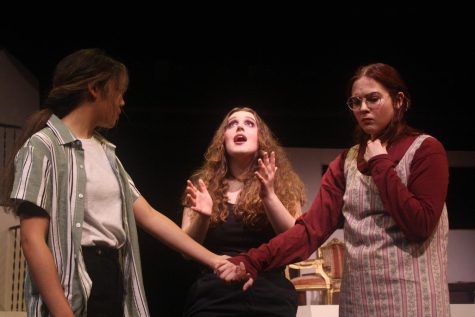
The addition of a same-sex couple in 1980s Lousiana adds a new layer to the family’s turmoil, along with Tartuffe’s schemes and Damis’s faux satanic persona. Marianne’s father does not approve of Valerie, and he wants his daughter to marry Tartuffe.
All of Coussens’ stylistic choices directly fuel the modern bridge between the production and today, making this showing of “Tartuffe” reflective of today’s world and its struggles.
“To do a play about a hypocritical person who swindles other people into believing what he says is true, I think is very reflective of today,” Coussens said. “It speaks very well to expecting more of our leaders and holding our leaders to a higher standard, but it also shows how vulnerable we can be to hypocrisy.”
This must-see performance has showtimes at 7:30 p.m. Oct. 13-15 and 1:30 p.m. Oct. 16, and tickets are free for Augustana students with ID. Tickets are $15 for general admission, $12 for senior citizens and $10 for faculty, staff and non-Augustana students.
